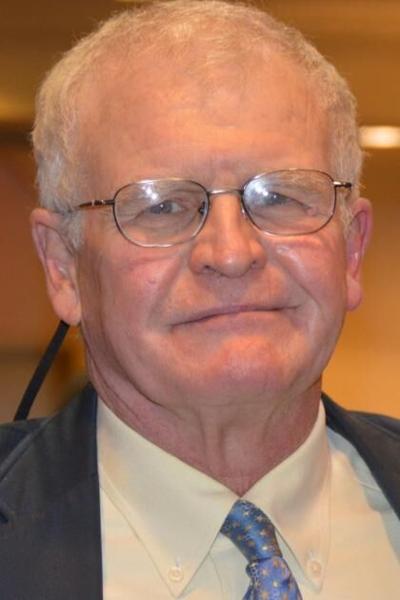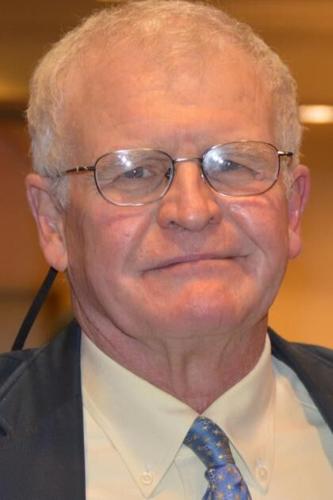Family relationships can be loaded, especially when a powder keg of politics enters the room.
People either retreat from the fire, or hurl insults and accusations like homemade grenades as they strive to demolish opposing views. Some cower on the sidelines, hoping the fight will fizzle.
The strategies are repeated in many homes and meetings. At a time when political polarization has reached new heights in American life, and friends, co-workers and relatives are splitting into like-minded camps, Braver Angels of Northern New England is hoping to defuse the conflict, starting at ground level.
“We live in bubbles politically, and people don’t have conversations with people who disagree. We don’t try to change anyone’s opinion. We’re just trying to have a constructive conversation,” said Douglass Teschner, regional leader for Braver Angels, and a former New Hampshire state representative and Peace Corps leader.
Teschner is used to dealing with opposing sides in dicey situations. “The people on the extremes are driving the agenda today. The people in the middle are the exhausted majority. We’re trying to give the people in the middle a voice,” Teschner said.
Founded in 2017 as a national volunteer alliance in the wake of the 2016 presidential election, Braver Angels gives seminars and workshops on how to actively listen and converse respectfully about sensitive political, economic and social topics that strike a nerve for both parties.
“It's so easy to talk about ‘those people’ and make assumptions about ‘those people,’ said Teschner, a Republican legislator from Pike who served in the State House from 1988 to 1998 and from 2000 to 2002. Teschner also worked as developmental director at Riverbend Community Mental Health in Concord, and in the Peace Corps in Morocco, West Africa and Ukraine.
But it’s the tension and discord at home that worries him now – an erosion of unity and civility that threatens democracy, he said. “A lot of people feel they’ve been left behind and not treated with dignity and respect. People feel the mission and the need” for forums to talk about what they believe and why, Teschner said.
Braver Angels hosts online seminars and workshops in which Democrats and Republicans gather to discuss their positions while obeying rules of polite engagement. They receive coaching on self-reflection, and practice speaking about uncomfortable subjects with political opponents. Currently, more Democrats are active in the northern New England chapter, Teschner said.
“We’re trying to pull from both sides. We’re definitely reaching across the political spectrum. We’re trying to get a breakthrough. We’re trying to teach people how to be more constructive in their conversation,” he said.
Change builds from the bottom up, one by one. “People think the other side is biased, but they themselves are not,” Teschner said. For families, politics can be “like a third rail, no one wants to touch it. It’s the elephant in the room – or more accurately, the elephant and the donkey in the room,” referring to the symbols of the Republican and Democratic parties, respectively.
Invisible lines
People surround themselves with others who agree with them, and are afraid to broach the subject with people who may think very differently. A culture of conflict and avoidance results. “People are really hungry for a safe space where they can have a conversation,” Teschner said.
Most diatribe comes from the far left or far right, while the vocal majority in the middle stays silent, Teschner said. Invisible lines are drawn about what is safe to say.
The better strategy is to reach out with genuine curiosity and interest, to ask in order to learn where someone else is coming from – not to rebuff, retrain or refute, according to Braver Angels.
Martha Kruse of Laconia said the coaching can be a game-changer.
“If someone starts telling their story, why they think what they do, it’s an opportunity for self-reflection on their own past,” said Kruse, who describes herself as liberal-leaning. “For the person asking, it’s an opportunity to find some compassion and common ground, and then to offer another perspective.”
“The goal is not to change anybody’s mind but to have a conversation that’s respectful, and to dignify the other person’s perspective even if it’s different from yours – and to not feel that your values and views have been compromised by your silence, or by some comment you made that you’re not proud of later,” said Kruse.
The training, based on family counseling work, identifies six roles that families play in political conversations:
According to Braver Angels, "The Gladiator" starts battles with "wrong-headed" relatives, seeking to straighten them out.
"The Defender" steps in with a counterattack, often misstating something said as an untrue and offensive extreme, such as: “So you want the borders closed to everyone who doesn’t look like you.”
"The Sniper" digs in to get a rise from the group, or draws like-minded sharks in for the kill: “So what does our family socialist think?”
"The Peacekeeper" tries to cut off all political conversations: “Let’s stay away from politics. This is a family gathering.”
Meanwhile, "The Bystanders" look away and stay mute. "The Engager," who is the pivotal and game-changing player, tries to hold respectful conversations across differences.
This is the role that Braver Angels encourages – the constructive conversation starter who tamps down family tensions, and is armed with weapons of of diplomacy: active listening, looping, sincere interest in learning, and language of respect.
It’s important to remind yourself that the others aren’t you, and they don’t have to change for you to feel OK, according the Braver Angels playbook. Don’t reintroduce family grievances or jealousies. Have adult conversations without reliving your past. You can only change how you react, while actively listening to what others believe and why.
According to Braver Angels: Don’t let yourself get baited into conversations with family members who are primed to pick a fight. Choose when you’re ready and able to have a calm and respectful discussion, and ask your opponent if they want to listen to what you have to say. If necessary, head off a battle: “Let’s not go there during dinner or right before I have to leave.”
After ‘The Gladiator’ speaks, repeat or summarize what you have heard, so they know that you’ve been listening. It can help to ask them to clarify: “Are you saying…? I think your main point is….”
Find something, anything they say that you can agree with, according to Braver Angels. For instance, “I’m with you on that” or, “I agree that this is a mess.”
Then ask if you can give your thoughts on the issue. Say it as an “I statement,” not as a declaration of fact or reason. For instance: “From my perspective, I think… or I’m concerned…” Don’t lash out and accuse someone of being wrong or ignorant. Criticism leads to anger and counterattack, or hurt and retreat. In either case, you’ll get a stalemate.
Look for a good time to exit, after an initial constructive interchange. Don’t expect to voice all your beliefs, or understand all of theirs. If the conversation goes better than expected, be visibly and vocally pleased. For instance, say, “This doesn’t happen very often these days in our society. I appreciate what you said, and thanks for discussing this with me.”
The goal is not to change someone, or to debate. It’s to have a peaceful and mutual informative discussion that can act as an opener to conversations in the future.
For more information and upcoming workshops, go to www.braverangels.org. The next online “Families and Politics” workshop is Feb. 21.



















(0) comments
Welcome to the discussion.
Log In
Keep it Clean. Please avoid obscene, vulgar, lewd, racist or sexually-oriented language.
PLEASE TURN OFF YOUR CAPS LOCK.
Don't Threaten. Threats of harming another person will not be tolerated.
Be Truthful. Don't knowingly lie about anyone or anything.
Be Nice. No racism, sexism or any sort of -ism that is degrading to another person.
Be Proactive. Use the 'Report' link on each comment to let us know of abusive posts.
Share with Us. We'd love to hear eyewitness accounts, the history behind an article.